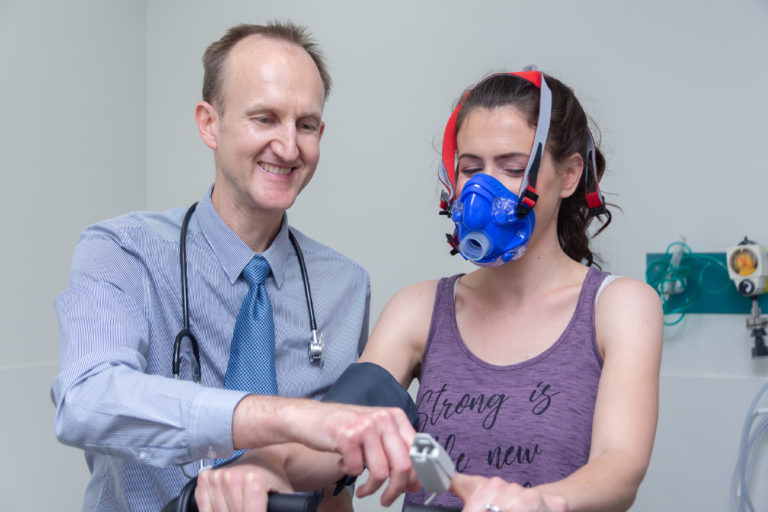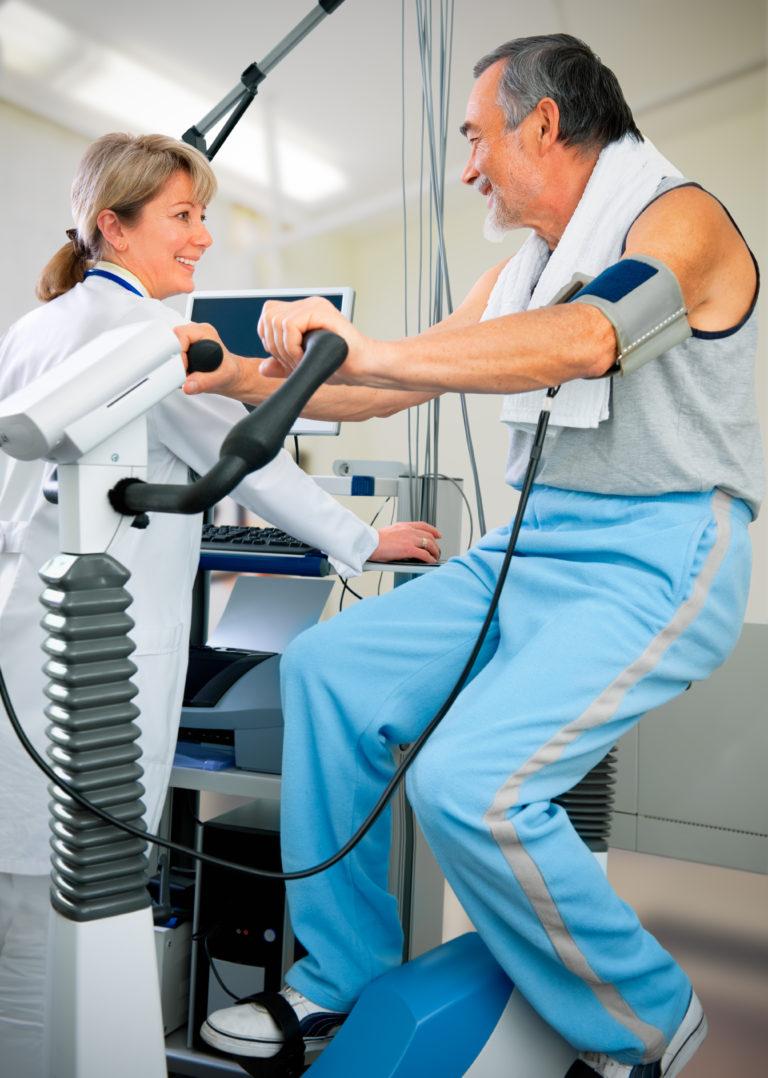
CPEX Test for Doctors
Our team of doctors, dietitians and exercise physiologist can help. The program below is designed for objective risk assessment and rapid preoperative optimisation.
Introduction
CPEXBrisbane is a state-of-the-art peri-operative service offering the gold standard in risk assessment via its cardiopulmonary exercise stress testing facility and coordination of a unique, tailor-made preconditioning program for each patient. We are expert in peri-operative risk assessment and optimisation.
General information
What is cardiopulmonary exercise stress (CPEX) testing?
It is an objective standardised functional capacity assessment with precise serial comparison capabilities to accurately track the status of heart, lung and muscle health over time.
This empowers the clinician to:
- Accurately predict the patients’ perioperative risk
- Identify areas of risk reduction
- Effectively monitor the changes in functional capacity in response to insults (i.e. chemotherapy) or interventions (i.e. medical optimisation and exercise).
Indications for the CPEX-testing:
- It’s the gold standard to distinguish between cardiac and respiratory causes of short ness of breath
- Track the progress of disease
- Track response to treatment
- Perioperative risk assessment
This information assists the perioperative team with difficult decisions such as:
- Whether to proceed with surgery
- Timing of surgery
- Suitability of the patient to be part of an advanced recovery program
- Requirement for intensive care post operatively


How does it work?
The Cardiopulmonary Exercise Test is a highly sensitive, non-invasive stress test. The duration of the test is about 45 minutes, which includes 10 minutes of mild to moderate intensity exercise on an upright stationary bicycle. The full cardiopulmonary system is assessed during a CPEX test by measuring the amount of oxygen the body is using, the amount of carbon dioxide it is producing, the breathing pattern, and electrocardiogram (ECG). This is integrated with the continuous measurement of oxygen saturation in the blood as well as a noninvasive blood pressure measurement.
A disease or condition that affects the heart, lungs or muscles will limit how much faster and harder these systems can work. A CPEX test assesses how well the heart, lungs, and muscles are working individually, and how these systems are working in unison.
Why is this test not used more commonly?
This is due to the highly demanding nature of the equipment in terms of the need for daily calibration and maintenance as well as the lack of well-trained technicians. Even if the test data is collected properly, very few specialists the world over are proficient in interpreting all aspects of the data to determine the cause of exercise termination.



